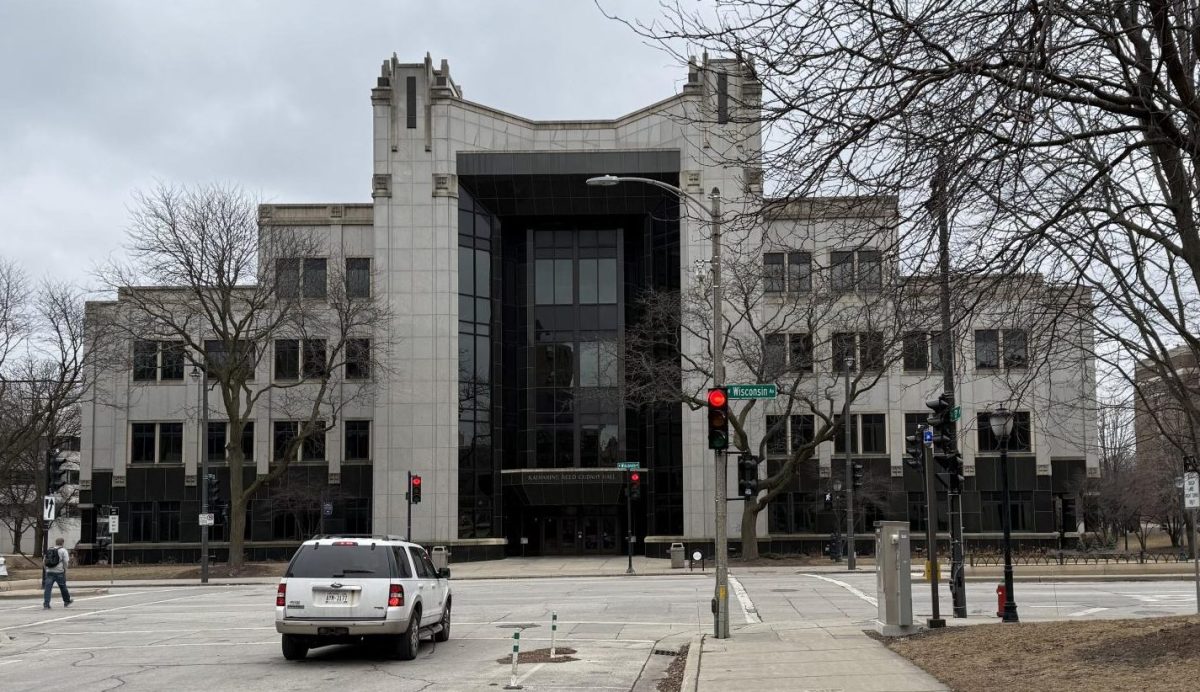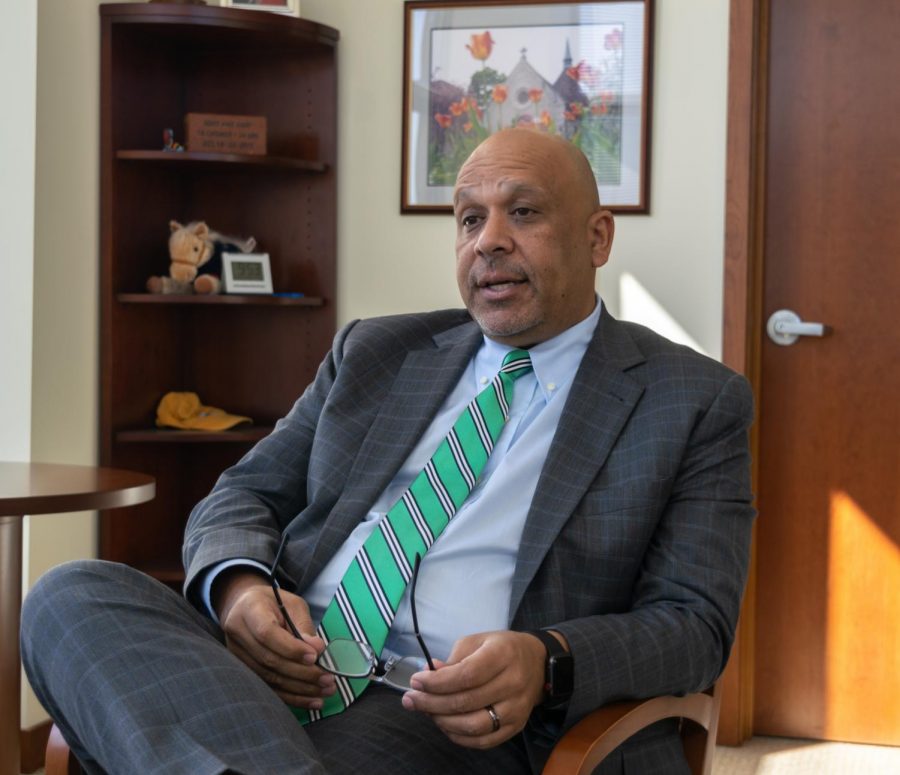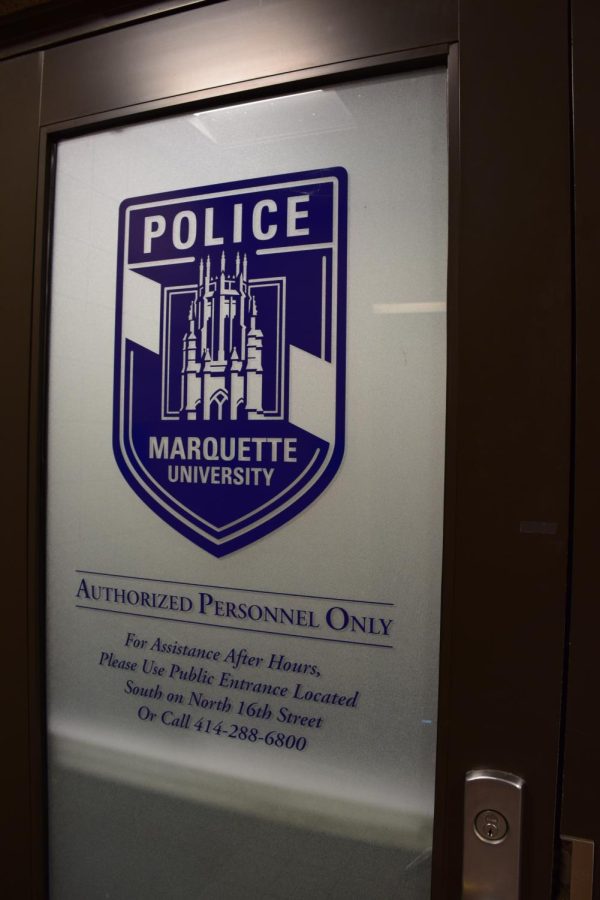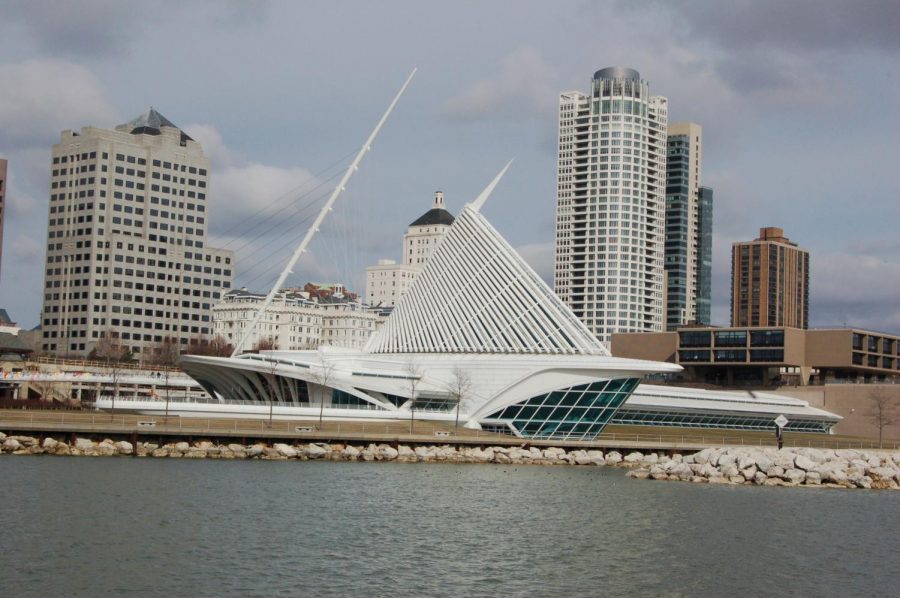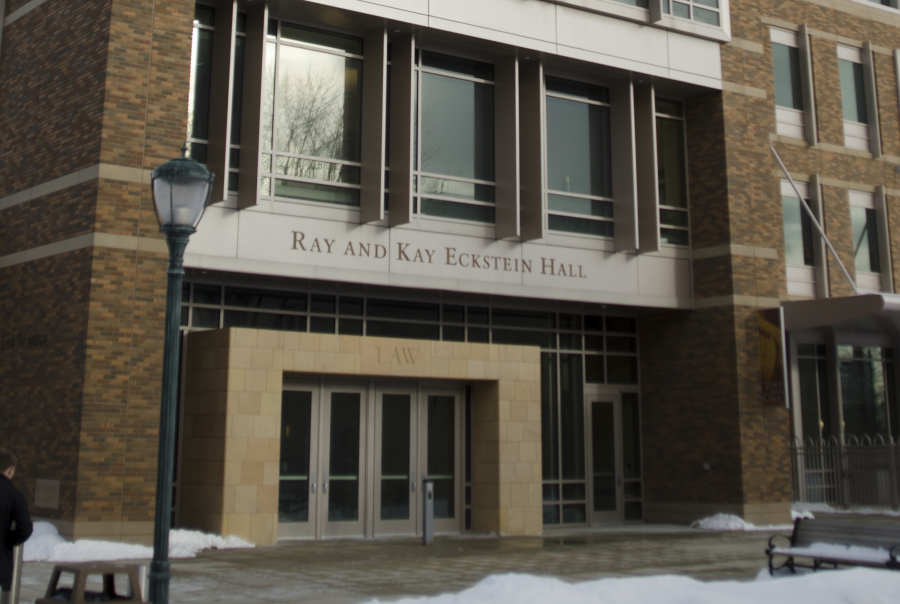Gov. Tony Evers, who spoke at a Milwaukee Press Club event downtown Tuesday afternoon, denounced the rhetoric used by some Republican state legislators to discuss the Democratic governor’s lead water line proposals.
Evers recently proposed $40 million in the state budget to replace the state’s lead water lines. Alternatives to pipe replacement, such as drinking water filters, were expressed as a more attractive option by some Republican state lawmakers.
Lead water lines are most likely to be found in older cities and homes built before 1986, according to the Environmental Protection Agency. When plumbing materials containing lead begin to corrode, lead can enter drinking water streams.
Women of reproductive age, children, infants and fetuses are most affected by consumption of lead drinking water. Lead can accumulate in the body and cause a variety of health complications, from nervous system damage to impaired formation and function of blood cells, according to the EPA.
Sam Harshner, an adjunct instructor in political science, organized a panel on lead water lines on Marquette’s campus in March 2018. At the event, he said there is a potential that Marquette students – especially those in off-campus housing – have lead pipes feeding their water supplies.
In a previous story, the Marquette Wire reported there are 123 properties with lead service lines located between 11th and 25th streets and Clybourn and State streets. The addresses, which encompass many off-campus housing options for Marquette students, were gathered from an online database released by the city.
Some state lawmakers fear that most of Evers’ proposed money will go to Milwaukee, leaving out other areas in the state.
If Evers’ proposal passes and Milwaukee qualifies for the state program, up to half of the cost of replacing a lead water line in the city would be covered. The city’s budget would cover additional costs, with $11.4 million currently set aside to replace lead water lines.
“If we can get by the issue of, ‘Why Milwaukee?’ I think we’ll get that money,” Evers said. “We don’t want kids in Milwaukee to drink lead. It’s pretty simple.”
The governor’s proposed budget first gets altered by legislators and committees, and then it needs to be passed by both houses of the state legislature before enacted into law. The deadline for the finalized budget is July 1, although the timeline can extend if officials are unable to agree on a compromise.
“We believe we have an adequate amount of money in the budget to make a good start on (replacing lead water lines),” Evers said.



